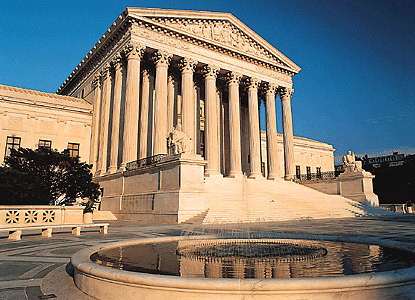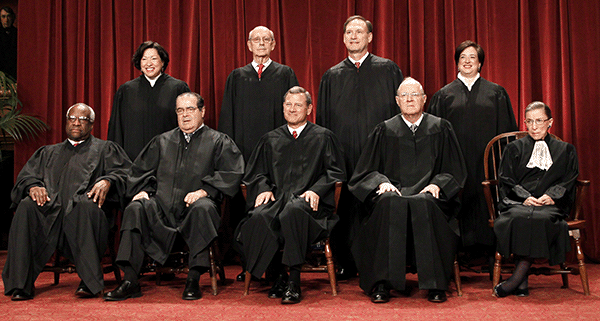U.S. Supreme Court Upholds “Obamacare”
June 28, 2012
The U.S. Supreme Court, in one of the most far-reaching decisions in years, upheld much of the Patient Protection and Affordable Care Act, President Barack Obama’s landmark health care law. In a 5-to-4 decision, the court confirmed that the individual health-insurance mandate is constitutional under Congress’s authority to tax citizens. The mandate requires nearly all Americans to buy health insurance by 2014 or pay a fine if they refuse.

The Supreme Court Building in Washington, D.C. (© Joe Sohm, Photo Researchers)
Legal and health care experts considered the individual mandate to be the most crucial issue before the court. Striking it down would have made it financially difficult for insurance companies to comply with other, more popular elements of the law without drastically raising premiums: Under the Affordable Care Act, for example, insurance companies can no longer limit or deny benefits to children because of a preexisting condition; and insurance companies must expand coverage to young adults up to age 26 under their parents’ plan. The act also provides subsidies to some lower middle-income households to buy insurance and to some businesses for insuring their employees.
A major provision of the Affordable Care Act expanded Medicaid to cover a much wider range of lower income citizens. (Medicaid is a U.S. government program that works in cooperation with state governments to partly finance medical assistance to needy people.) On the question of Medicaid, the court ruled that the expansion could move forward. However, it struck down a provision that threatens states with the loss of Medicaid funding if the states refused to comply with the expansion.
Chief Justice John G. Roberts, Jr., joined Stephen Breyer, Ruth Bader Ginsburg, Elena Kagan, and Sonia Sotomayor in voting to uphold the law. Associate justices Samuel Alito, Anthony Kennedy, Antonin Scalia, and Clarence Thomas voted against it.

The nine judges of the Supreme Court of the United States include Chief Justice John G. Roberts, Jr., (seated, center) and eight associate justices: Sonia Sotomayor, Stephen Breyer, Samuel Alito, and Elena Kagan (back row, left to right); and Clarence Thomas, Antonin Scalia, Anthony Kennedy, and Ruth Bader Ginsburg (seated, left to right). (AP Photo)
Popularly known as Obamacare, the law is expected to eventually extend health care coverage to more than 30 million Americans who currently lack it. It was also designed to help rein in health care costs, one of the largest and fastest-growing sectors of the economy.
Political experts note that the health care debate is far from over. Republicans–including the presumptive Republican presidential nominee, Mitt Romney–vow to overturn the act. Conservatives generally regard it as both unaffordable and an infringement on individual rights.
Additional World Book articles:
- Congress of the United States 2010 (a Back in Time article)
- Health 2010 (a Back in Time article)
- Entitlements–Benefit of Doubt (a special report)
- Health Care Reform–What’s In It for You? (a special report)
- Medicaid in Distress (a special report)


